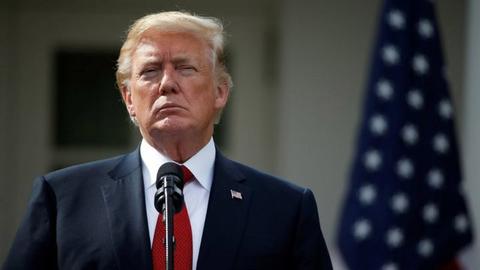Cinema lovers are used to miracles on screen, but the veteran actress Behnaz Jafari usually plays in miracle-less realist drama. That includes her latest film, Three Faces, directed by Jafar Panahi, who has been banned from filmmaking since 2010 and was not able to travel to France for the film’s screening as part of the Cannes’ official competition. Nevertheless, Behnaz was waiting for a miracle. Sitting with me on the journalists’ balcony at the festival palais on a gorgeous sunny day, she tells me of the surreal feeling of having to represent the film in Cannes in Panahi’s absence.
“I personally was wishing for a miracle to happen at the last moment so that Mr Panahi could join us,” Jafari tells me, as she remembers driving to the airport with the director and the cast. “When we met the Cannes officials, I thanked them and they gave us so much encouragement. We had a common language and [they] felt genuine sympathy. They wanted to tell us that they shared this sad yet joyful moment.”
In Three Faces, Jafari basically plays herself, as does Panahi. A young girl from the Turkic-speaking northwestern area of Iran has sent Panahi a video. In the video, the girl hangs herself after her family ignores her wishes to pursue an acting career and block her from doing so. The video is addressed to Jafari, a well-known actress in Iran, and that’s why Panahi has brought her with him on a trip through the rural area where the director himself hails from. Film critics have primarily commented on the film’s attention to and portrayal of feminism and advocacy over three generations (“faces”) of women artists in Iran. (Shahrzad, a retired actress from Iran’s pre-revolutionary days who lives in the area in modest circumstances, forms the third “face” of the film.) The film could equally be said to be about filmmakers being more than “just filmmakers,”’ an idea that is evidently dear to Jafari’s heart.
I personally haven’t liked Panahi’s recent made-while-being-banned films much, and while Three Faces is better than the atrocious Taxi Tehran (which still managed to win the Golden Bear at the Berlinale and was liked by audiences across Europe), the didacticism is a touch too obvious for me, especially when contrasted with the delicate human stories that Panahi once told in films like his hit debut White Balloon, which earned him a Camera d’Or in Cannes in 1995.
Jafari disagrees and says she has liked all of Panahi’s films. “They are all good films because they engage in social criticism. It is very important for an artist to reflect the pulse of society and show deep reactions. What else should a filmmaker do?”
So when she got the call for Three Faces, Jafari didn’t hesitate for a second.
“It was especially attractive for me that he had made films about women and their problems for years,” she tells me. “When the opportunity presented itself, I didn’t want to lose it. It is been an honor to play in this film.”
It is not the first time that Jafari has played herself in a film focused on her social standing as a well-known actress. She tells me that depicting social interactions is a big part of her role as an actress.
“Ordinary people see actors as representatives,” Jafari says. “They think they can get their words and views to statesmen, fellow Iranians and even people around the world, as we now see with this film. In cinema, we find a common language. We see people’s problems of living under the shadow of tradition. I try to use my art of acting to engage in criticism and also show solutions.”
“This can be a very difficult task,” she adds. “Maybe this is why many people want to become actors. Acting isn’t just fame, it also comes with many problems. Like being a face to the world. Although you can’t call it a problem, because it is such a pleasure too. But it remains a daunting task.”
That the film was made without receiving the official accolades, and somewhat clandestinely, meant a very unusual regiment, Jafari tells me.
“We had a very professional crew,” she says. “But it was obviously different from other projects in that I was anxious. I thought that a bad accident could spoil things any minute. The work’s tempo was such that we didn’t have room for mistakes or any waste of time. We needed to be faster than usual.”
It helped that they filmed in the rural areas where Panahi grew up. “Everyone knew him and every old man and woman in the village wanted to help in some way,” she says. “But we still needed to be extra careful. Even if I wanted to tie my shoes, I had to make sure we were not losing time.”
When the awards are announced on Saturday, May 19, Panahi and Jafari will no doubt hope for good news, like all other filmmakers who have made it here, to the world's biggest stage for cinema. But after the show on the Croisette ends and we all pack up, Jafari will go home conscious of the fact that she’ll be expected to be an actress. But also something more.
visit the accountability section
In this section of Iran Wire, you can contact the officials and launch your campaign for various problems



























comments